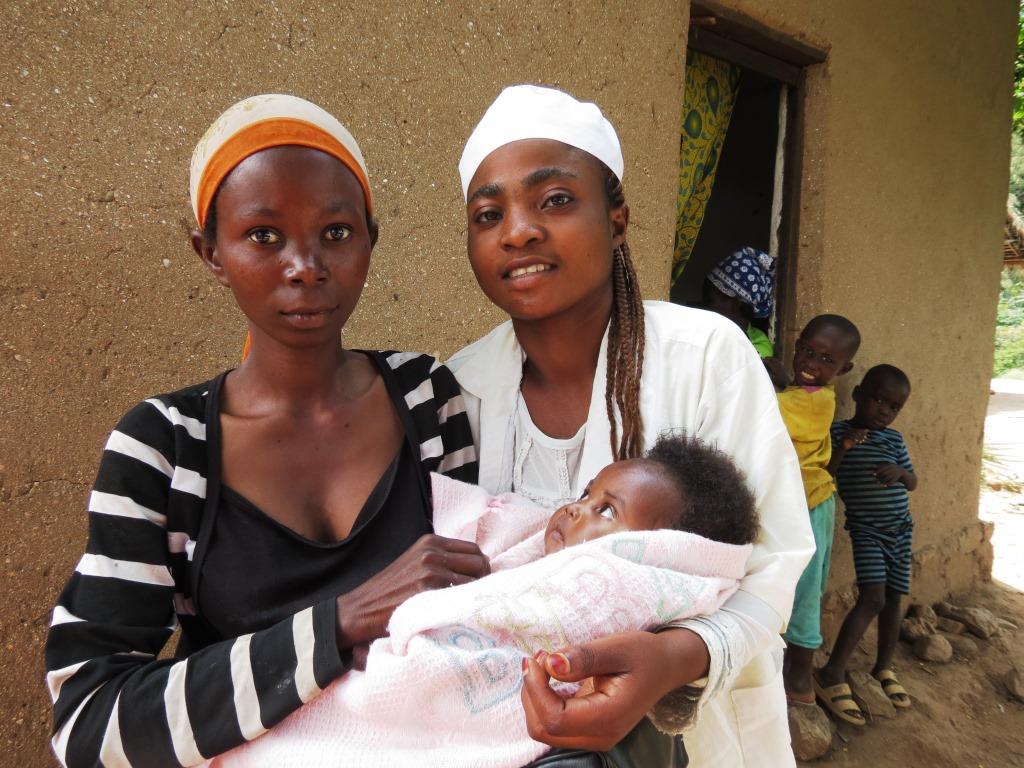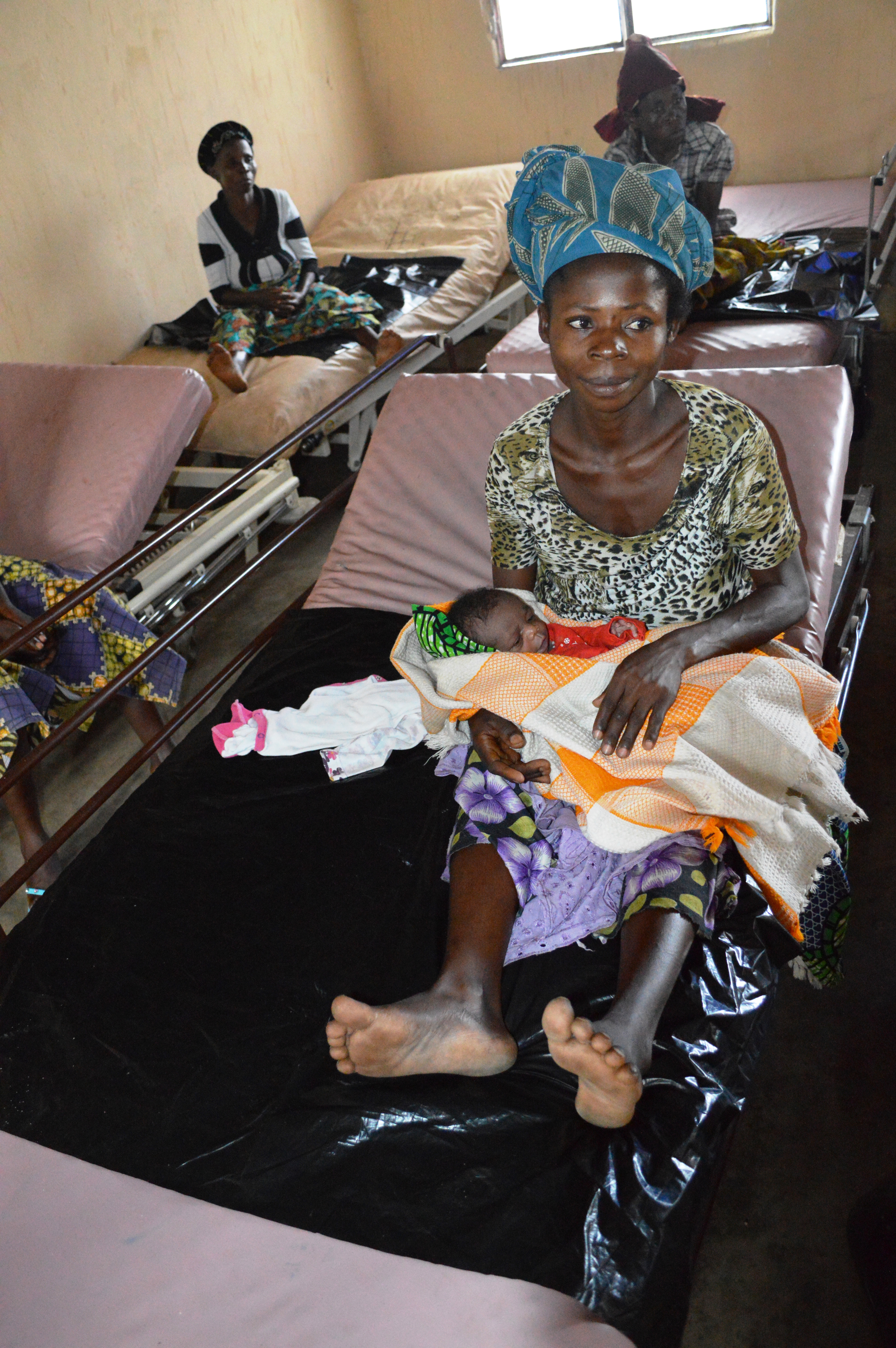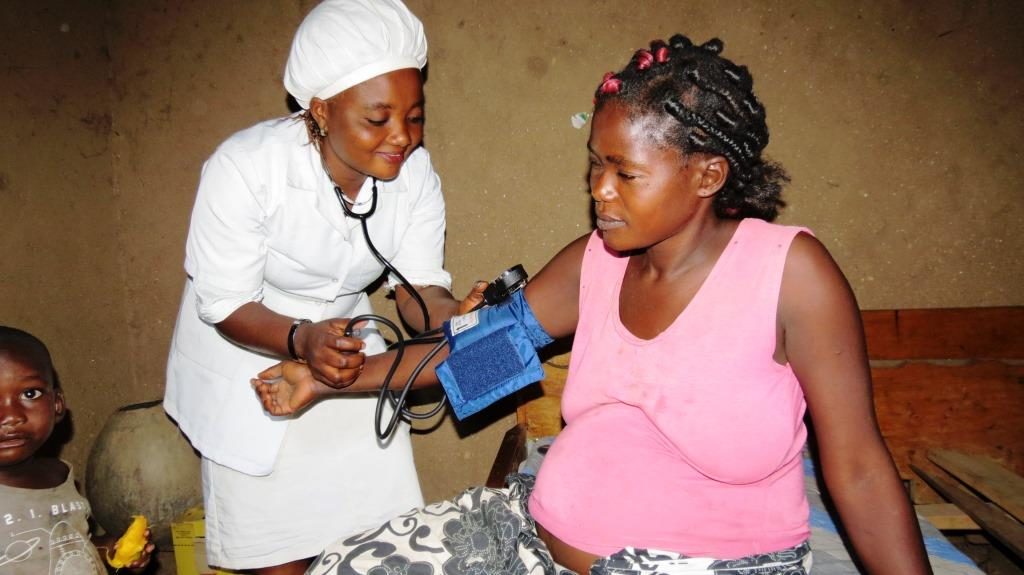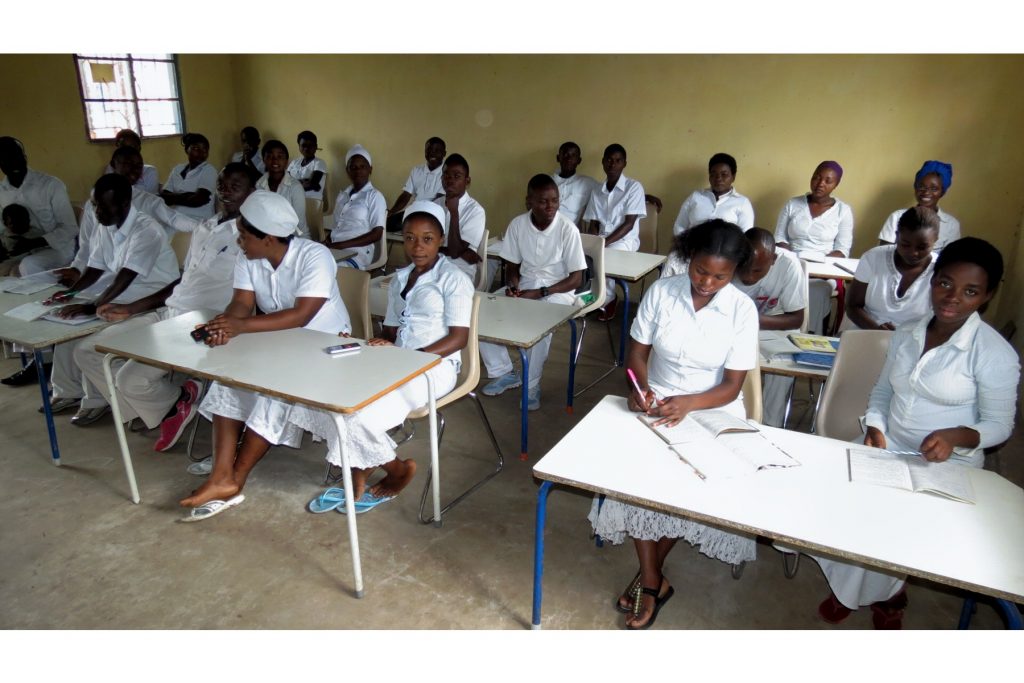GREAT LAKES MIDWIFERY COLLEGE
PROVIDING HOPE, HEALTH & EDUCATION

The MHCD Midwifery school builds permanent capacity into communities which only 4 years ago relied on untrained Traditional Birth Attendants (TBAs) to help women when they gave birth.
A trained midwife has the same qualifications as a trained nurse and can treat the entire community.

The MHCD midwifery school is a fabulous extension of the Zonta Birthing Kit Project.
The school is based in Luvungi village near the MHCD headquarters and the MHCD Luvungi Hospital.
Community workers and village elders were asked to select two students from each village to study nursing and midwifery. They mainly chose girls from poor families who had completed their secondary school diploma. Some were orphans, some from remote villages, and a few were from the Pigmies’ community.
After training they go back to their villages to promote primary health care, treat patients and train traditional midwives and other community health workers. They also open a dispensary or health centre and assist with births. The dispensary provides income to the village and empowers the women in the community. Other services include immunizations, transferring difficult cases to the nearest hospitals, and assisting with birthing kit distribution.
It costs $700 to train one student for 1 year. A student can be allocated to you to support.
Mission in Health Care and Development has a midwifery and nursing school called the Great Lakes Medical School. The project started when we had a training of trainers Midwifery seminar 6 years ago that was supported by Birthing Kits Foundation Australia. After the seminar, the participants suggested that they would like to be full trained midwives and they requested MHCD to create its own Midwifery school. We wrote a proposal to the Government and it gave us the Go ahead. DRC midwifery and nursing Diploma program is a four year course. By good Luck, the first promotion completed last year in July. In September they acquired their Certificates and they went back to their villages so they could give back to their communities by first integrating into Health centres and working with the midwives. The agreement we had with them was that after acquiring the knowledge and skills from the Great Lakes Medical school they will go back to their communities and work from there for a period of 5 years and they shall be continuing with the program of Birthing kits distribution and the training of traditional midwives and community health workers in their villages.


In December 2018 they came to MHCD to report back on their field work and it was very very positive. When they were in the villages, they rented small houses and they divided it into various services like reception, consultation, delivery room, small pharmacy and a resting room. The Fourth Year in DRC is for practical’s and because they were learning from MHCD premises where they had access to the hospital for practice, it was a great opportunity for them to gain experience. This is why after training they were able to come up with small dispensary and delivery room. Dr Luc and MHCD Doctors went to visit them in January 2019 and we found that they are doing very well and that the work is bringing positive impact into the community.
The big challenge and problems they are facing by day is that they do not have enough medicine, no medical equipment, no beds and mattresses and the small houses do not have adequate hygienic conditions. We request all well-wishers to help them in construction birthing huts or dispensaries and supporting the program with medicine and medical equipment. Also they are in need of beds and mattresses that we can purchase locally. Most of these villages do not have health centres and the people in the community used to travel for kilometres to get to hospitals, clinics or health centres but through the students from MHCD they can access medical care from them. For the few months they have worked, they have helped reduce infant mortality and mother morbidity and improving the quality of health care in their villages.10 students graduated and we still have 40 others still at the school awaiting completion of their studies.

